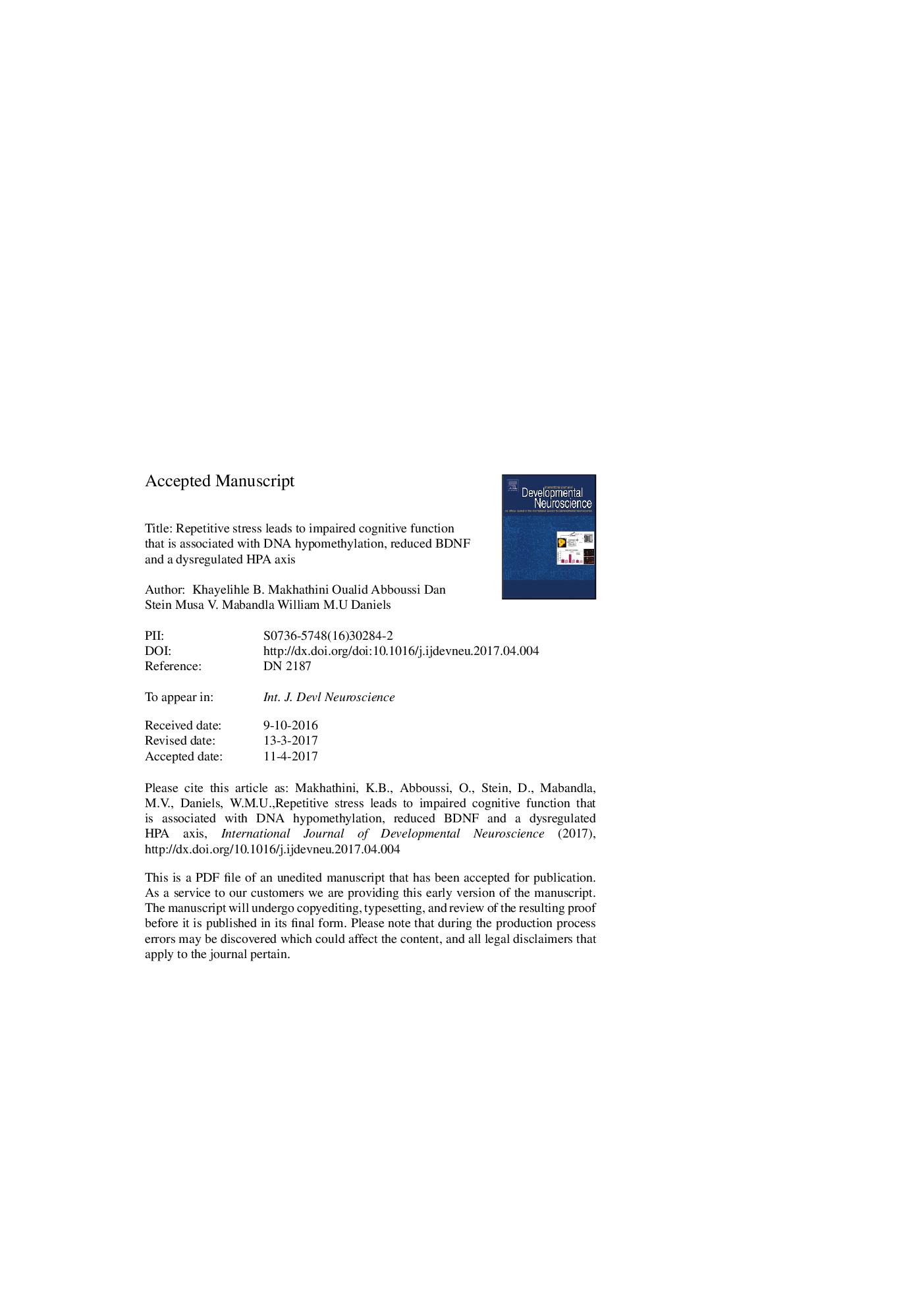| Article ID | Journal | Published Year | Pages | File Type |
|---|---|---|---|---|
| 5585807 | International Journal of Developmental Neuroscience | 2017 | 25 Pages |
Abstract
Exposure to repetitive stress has a negative influence on cognitive-affective functioning, with growing evidence that these effects may be mediated by a dysregulated hypothalamic-pituitary-adrenal (HPA) axis, abnormal neurotrophic factor levels and its subsequent impact on hippocampal function. However, there are few data about the effect of repetitive stressors on epigenetic changes in the hippocampus. In the present study, we examine how repetitive restrain stress (RRS) affects cognitive-affective functioning, HPA axis regulation, brain-derived neurotrophic factor (BDNF) levels, and global hippocampal DNA methylation. RRS was induced in rats by restraining the animals for 6Â h per day for 28 days. The novel object recognition test (NORT) was used to assess cognitive functioning and the open field test (OFT) was performed to assess anxiety-like behavior during the last week of stress. Hippocampal BDNF levels, glucocorticoid (GR) and mineralocorticoid (MR) receptor mRNA were assessed using real-time PCR and confirmed with Western blot, while ELISAs were used to determine plasma corticosterone levels and the global methylation status of the hippocampus. Animals exposed to repetitive stress demonstrated significant alterations in the NORT and OFT, had significantly increased plasma corticosterone and significantly decreased hippocampal BDNF concentrations. The expression levels of GR and MR mRNA and protein levels of these genes were significantly decreased in the stressed group compared to control animals. The global DNA methylation of the hippocampal genome of stressed animals was also significantly decreased compared to controls. The data here are consistent with previous work emphasizing the role of the HPA axis and neurotrophic factors in mediating cognitive-affective changes after exposure to repetitive stressors. Our findings, however, extend the literature by indicating that epigenetic alterations in the hippocampal genome may also play an important role in the development of hippocampus-associated behavioral abnormalities.
Related Topics
Life Sciences
Biochemistry, Genetics and Molecular Biology
Developmental Biology
Authors
Khayelihle B. Makhathini, Oualid Abboussi, Dan J. Stein, Musa V. Mabandla, William M.U. Daniels,
